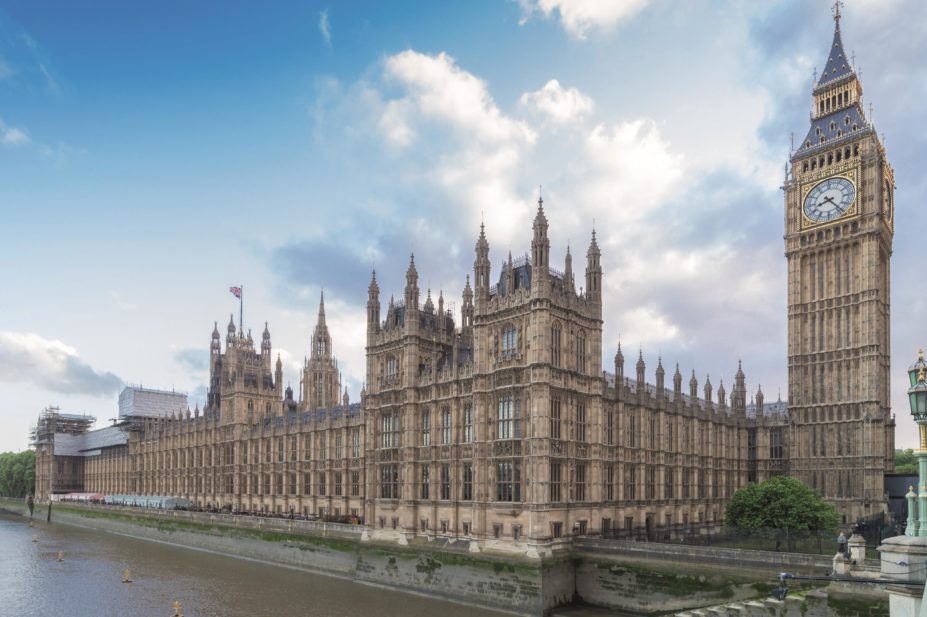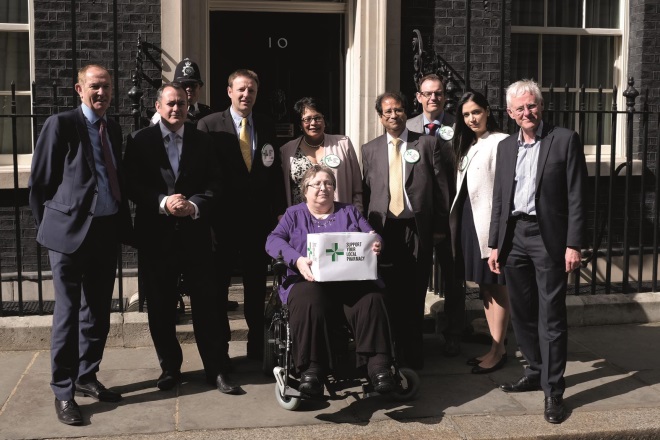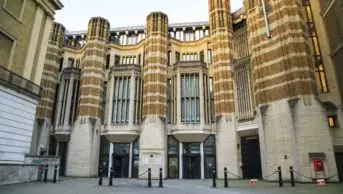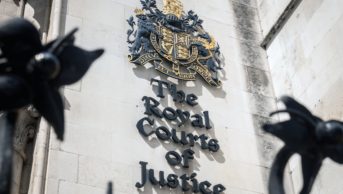
Shutterstock

Labour MP Michael Dugher (pictured second from left with fellow ’Support Your Local Pharmacy’ campaigners) urged the government to listen to the public and consider “how these cuts are bad for so many of our communities” during a parliamentary debate on 24 May 2016, the same day 1.8 million signatures against the cuts were delivered to 10 Downing Street
The government aims to communicate its final decision on the proposed £170m community pharmacy cuts in early July 2016, health minister Alistair Burt told a House of Commons debate on 24 May 2016.
The adjournment debate occurred a few hours after a petition, signed by 1.8 million people, was presented to 10 Downing Street. The petition was organised by the National Pharmacy Association and asks the government to abandon plans that put pharmacy services at risk.
Although the public consultation period on the cuts ended on the day of the debate, Burt said that the government would not “stop listening and talking”.
The government plans to continue to hold confidential talks with the Pharmaceutical Services Negotiating Committee, which negotiates the pharmacy contract in England on behalf of pharmacy contractors, and other stakeholders.
Burt confirmed that information will be shared in July 2016 so that contractors could be fully informed in advance of the changes being implemented in October 2016.
He stressed that pharmacy could move in a new direction, but that the current funding model had rewarded volume of prescriptions, not quality. He added that he was confident that the efficiencies that the government had proposed would not compromise the quality of services to the public.
Labour MP Michael Dugher, who secured the debate, urged the government to abandon plans that put pharmacy services at risk. “This is not a clear or well thought through strategy. It is in fact a reckless leap into the unknown. And it will be NHS patients in every community in the country that will potentially pay the price.”
Dugher said the petition was “the most signed petition on any health issue in history”.
“There is massive opposition out there to the government’s planned cuts,” he added. “The government must now listen to the public and consider how these cuts are bad for so many of our communities, bad for the pharmacy sector, bad for public health and indeed bad for the wider NHS.”
Speaking at the debate, Dugher also highlighted a report, published on 23 May 2016 by Pharmacy Voice, a trade association that represents community pharmacy organisations in England, which said pharmacy was the key to unlocking deep-rooted health inequalities.
Community pharmacies offer free medical advice, dispense prescriptions, and crucially reduce strains on other NHS services, he said. The pharmacy team is often the first port of call for a patient or carer, with “1.2 million health-related visits to community pharmacy occurring across the country every single day, more than to any other primary care provider”.
He added that the timing of the cuts could not be worse considering the financial crisis faced by the NHS, and the pressures on hospital emergency departments. “How does an arbitrary cut, because that is what it is, to community pharmacies on this scale possibly do anything other than make a bad situation worse in our NHS?” he argued.
Dugher also criticised the government for its lack of information on which pharmacies could see closures. “Up to 3,000 pharmacies could close, but we have no planning, no strategy and no impact assessment. It is painfully obvious that the government has not the faintest idea which community pharmacies are potentially at risk of closure.”

